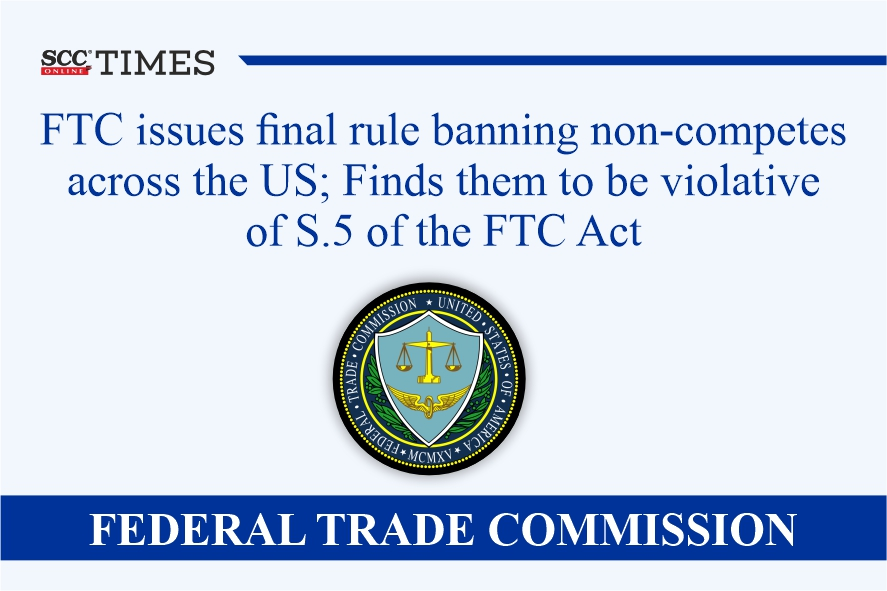Federal Trade Commission (“FTC”): The FTC issued a final Non-Compete Clause rule on 23-04-2024 that bans non-competes across the country, to protect competition and the fundamental freedom of workers to change jobs, and to increase innovation and promote new business formation. The Commission determined that non-competes are an unfair method of competition, and therefore violative of Section 5 of the Federal Trade Commission Act, 1914 (“FTC Act”). The final rule will become effective 120 days after publication in the Federal Register.
The Commission found that non-competes tend to negatively affect competitive conditions in labor markets by inhibiting efficient matching between workers and employers. The Commission also found that non-competes tend to negatively affect competitive conditions in product and service markets, inhibiting new business formation and innovation. It was noted that there is evidence that non-competes lead to increased market concentration and higher prices for consumers.
Applicability: The Rule bans all future non-competes after it comes into effect, and selectively allows for the existing non-competes, especially for those made for senior executives to remain enforceable. However, the existing non-competes for workers other than the senior executives will not remain enforceable beyond the effective date.
Key points:
- Existing non-competes for workers largely will not be in force after the rule is effective
- Existing non-competes for senior executives can remain effective, but new non-competes are not enforceable even for senior executives
- Senior executives are defined as workers earning more than $151,164 annually and undertaking policymaking tasks.
- Employers mandated to provide notice to the workers that they shall not be subjected to any non-competes
-
After coming into effect, market participants can report suspected violations to the Bureau of Competition
Note: This Final Rule has been challenged in litigation on the same date as it was announced in the case of Ryan, LLC v. Federal Trade Commission1, before the United States District Court for the Northern District of Texas. The civil action alleges ‘power grab’ on the part of Federal Trade Commission. It has been alleged that the Final Rule uses the phrase “unfair methods of competition” which is an open-ended phrase and provides no intelligible principle to guide the agency. The suit further alleges that the Final Rule violates not only the FTC Act but also the US Constitution.
The afore-stated suit seeks that the Non- Compete Rule be set aside with a declaration that the FTC does not have the authority to issue rules defining acts to be unfair methods of competition. The suit further seeks a declaration that the Commission itself violates the US Constitution as its Commissioners are improperly insulated from Presidential removal.
1. Civil Action No. 3:24-cv-986






